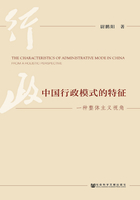
Abstract
What is the administrative mode? Can we construct the theory of the administrative mode? Many scholars tried to draw lessons from foreign in practice of public administration theory, but met many difficulties brought from environment, history, culture and other factors. In recent years, many scholars have noticed the particularity of Chinese administrative theory research, dedicated to study in Chinese style. In this paper, I based on the perspective of holism from administrative culture, administrative organization, administrative action, administrative mechanism to construct China's administrative mode. This paper argues that the so-called administrative mode is in the process of government running mix administrative culture, administrative organization, administrative behavior and administrative mechanism together. In this concept, the administrative culture is the core and soul of administrative mode; Administrative organization is the form of administrative mode; Administrative action is external manifestation of administrative subject; Administrative mechanism is the premise and key elements of administrative mode's normal operation.
The context of western and Chinese holism are embodies the principle and tendencies of processing relationship of part and the whole, but are not completely consistent, the reason was that the two kinds of holism's ontology is different. View of Western“entity ontology”thinks the human society and the origin of the universe is an entity. From the ontology, although western holism attaches great importance to the effect of the“whole”, but builds on the basis of the understanding of individual character, has not completely get rid of the shadow“individualism”. China's holism have a kind of relational ontology. The ontology thinks the world originated from the changing relational assumption called“dao”. Under the influence of relational ontology, the Chinese understanding of everything on the methodology of holism is through“relationship”, not“individual”. The improvement of the individual must grow through the social and the way is to“cultivate one's morality raises a gender”. The moral becomes an important means of regulating the relationship between individual and society. The“moral”has brought into the relationship allowing ontology and axiology in fact become a problem, that is,“ought to be”and“to be”become the same problem. On this basis, I further proposed methodological holism and in order to build China's administrative pattern: The formation of holism feature in administrative culture experienced two stages: the ultimate understanding in universe and the world to ethics extending. Traditional administrative culture holism characteristics determine path selection and importance of“virtue”to the administration. Holism of administrative organization structure is characterized by various levels. History proves that these two contradictions triggered the collapse of the administrative system many times. How to deal with these two contradictions is the precondition of maintaining the stability of administrative mode. Patrol supervision system in China is the regulating mechanism of this kind of contradiction. In holism administrative mode, the administrative personnel, personnel values, personnel's motivation also has the holism characters. Besides administrative culture, administrative organization, administrative action, mechanism of administrative keep stable and maintenance of organization. Administrative mechanism including incentive mechanism, the control mechanism, the incentive mechanism, the guarantee mechanism and mobilization mechanism.
Keywords: Holism; Administrative Mode; Administrative Culture; Administrative Organization; Administrative Behavior; Administrative Mechanism